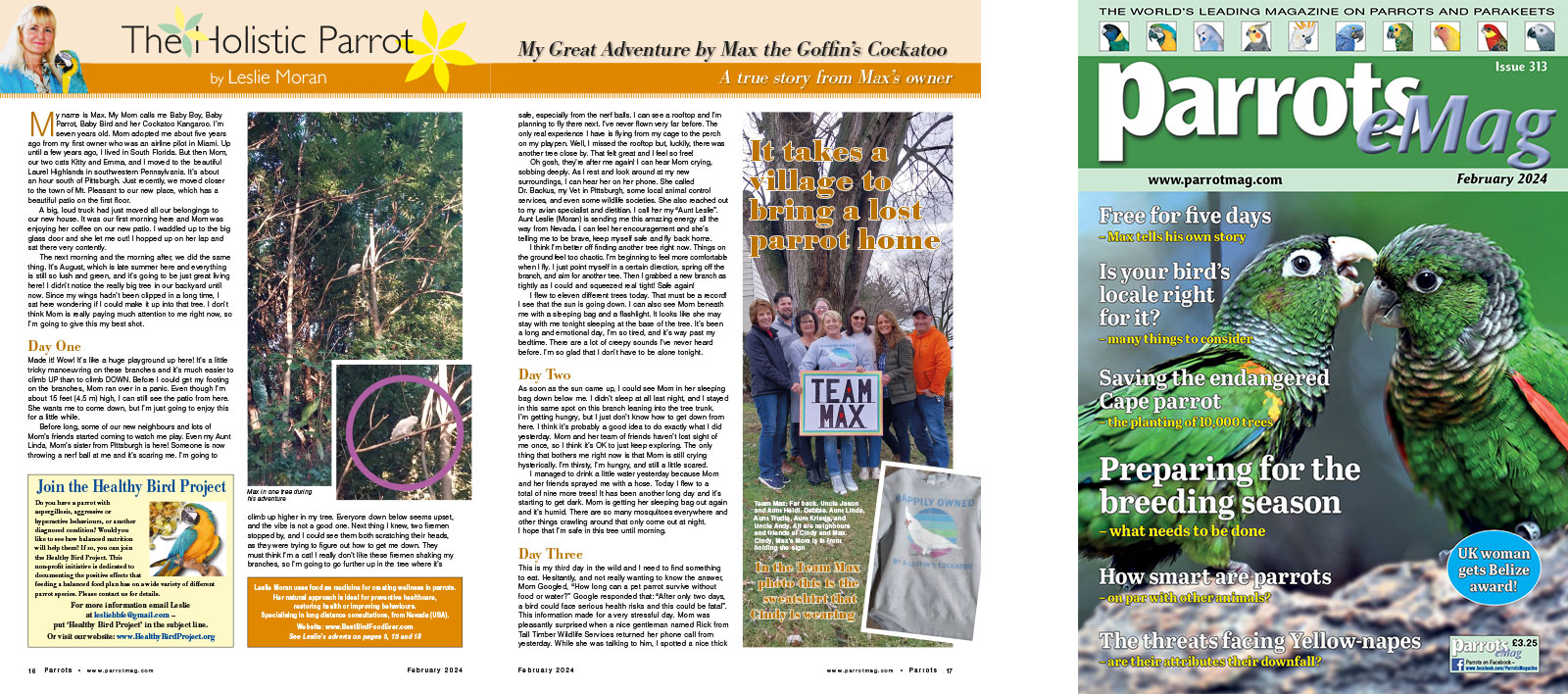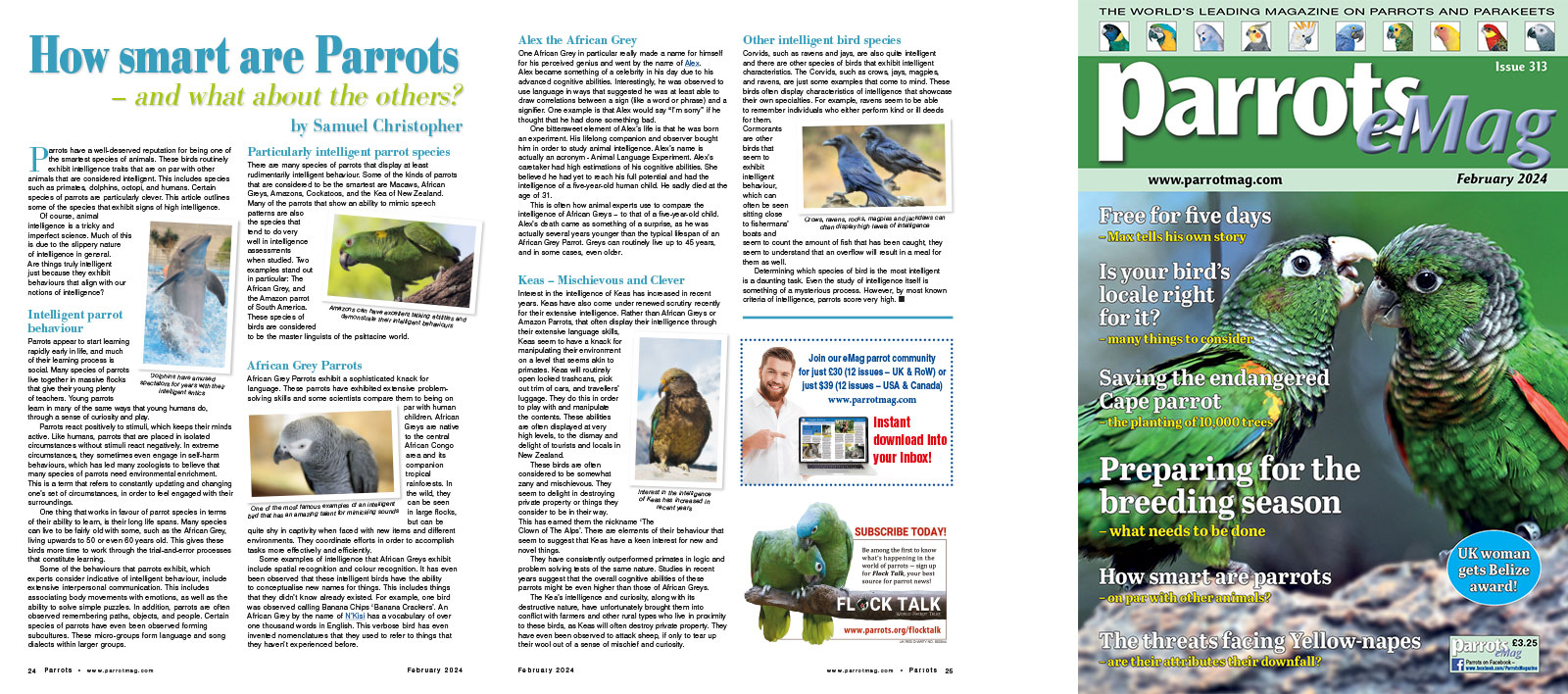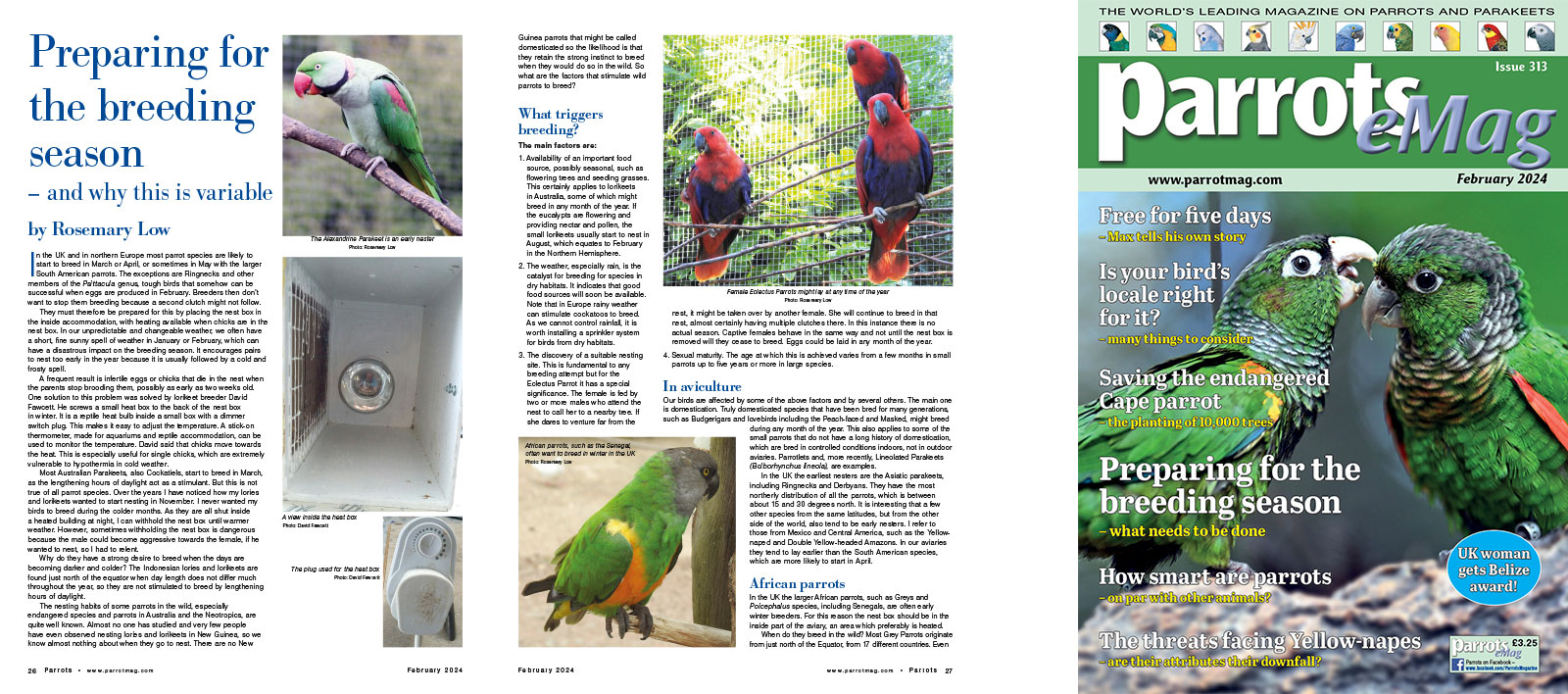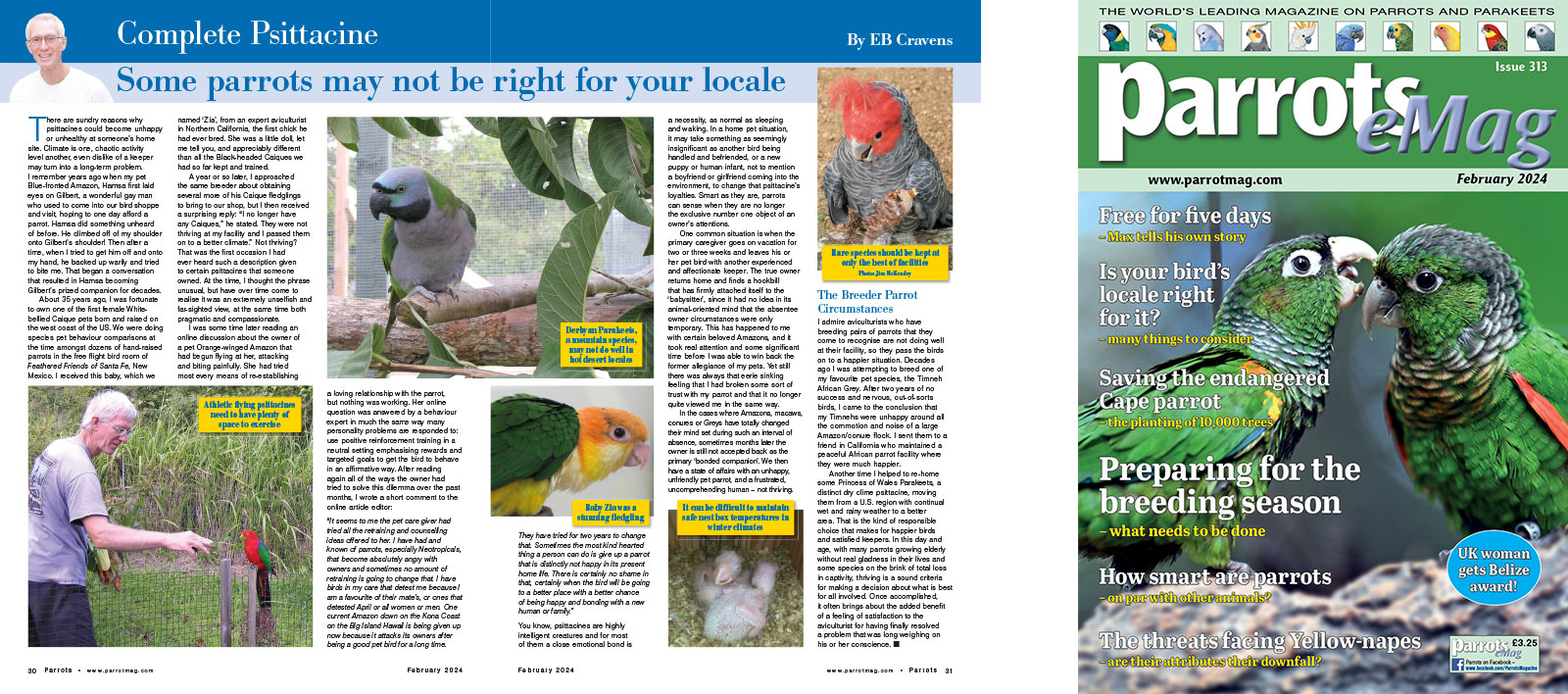
The Holistic Parrot by Leslie Moran
My name is Max. My Mom calls me Baby Boy, Baby Parrot, Baby Bird and her Cockatoo Kangaroo. I’m seven years old. Mom adopted me about five years ago from my first owner who was an airline pilot in Miami. Up until a few years ago, I lived in South Florida. But then Mom, our two cats Kitty and Emma, and I moved to the beautiful Laurel Highlands in southwestern Pennsylvania. It’s about an hour south of Pittsburgh. Just recently, we moved closer to the town of Mt. Pleasant to our new place, which has a beautiful patio on the first floor.
A big, loud truck had just moved all our belongings to our new house. It was our first morning here and Mom was enjoying her coffee on our new patio. I waddled up to the big glass door and she let me out! I hopped up on her lap and sat there very contently.
The next morning and the morning after, we did the same thing. It’s August, which is late summer here and everything is still so lush and green, and it’s going to be just great living here! I didn’t notice the really big tree in our backyard until now. Since my wings hadn’t been clipped in a long time, I sat here wondering if I could make it up into that tree. I don’t think Mom is really paying much attention to me right now, so I’m going to give this my best shot.
Buy Now!

By Samuel Christopher
Parrots have a well-deserved reputation for being one of the smartest species of animals. These birds routinely exhibit intelligence traits that are on par with other animals that are considered intelligent. This includes species such as primates, dolphins, octopi, and humans. Certain species of parrots are particularly clever. This article outlines some of the species that exhibit signs of high intelligence.
Of course, animal intelligence is a tricky and imperfect science. Much of this is due to the slippery nature of intelligence in general. Are things truly intelligent just because they exhibit behaviours that align with our notions of intelligence?
Parrots appear to start learning rapidly early in life, and much of their learning process is social. Many species of parrots live together in massive flocks that give their young plenty of teachers. Young parrots learn in many of the same ways that young humans do, through a sense of curiosity and play.
Buy Now!

by Rosemary Low
In the UK and in northern Europe most parrot species are likely to start to breed in March or April, or sometimes in May with the larger South American parrots. The exceptions are Ringnecks and other members of the Psittacula genus, tough birds that somehow can be successful when eggs are produced in February. Breeders then don’t want to stop them breeding because a second clutch might not follow.
They must therefore be prepared for this by placing the nest box in the inside accommodation, with heating available when chicks are in the nest box. In our unpredictable and changeable weather, we often have a short, fine sunny spell of weather in January or February, which can have a disastrous impact on the breeding season. It encourages pairs to nest too early in the year because it is usually followed by a cold and frosty spell.
A frequent result is infertile eggs or chicks that die in the nest when the parents stop brooding them, possibly as early as two weeks old. One solution to this problem was solved by lorikeet breeder David Fawcett. He screws a small heat box to the back of the nest box in winter. It is a reptile heat bulb inside a small box with a dimmer switch plug. This makes it easy to adjust the temperature. A stick-on thermometer, made for aquariums and reptile accommodation, can be used to monitor the temperature. David said that chicks move towards the heat. This is especially useful for single chicks, which are extremely vulnerable to hypothermia in cold weather.
Buy Now!

Complete Psittacine by Eb Cravens
There are sundry reasons why psittacines could become unhappy or unhealthy at someone’s home site. Climate is one, chaotic activity level another, even dislike of a keeper may turn into a long-term problem. I remember years ago when my pet Blue-fronted Amazon, Hamsa first laid eyes on Gilbert, a wonderful gay man who used to come into our bird shoppe and visit, hoping to one day afford a parrot. Hamsa did something unheard of before. He climbed off of my shoulder onto Gilbert’s shoulder! Then after a time, when I tried to get him off and onto my hand, he backed up warily and tried to bite me. That began a conversation that resulted in Hamsa becoming Gilbert’s prized companion for decades.
About 35 years ago, I was fortunate to own one of the first female White-bellied Caique pets born and raised on the west coast of the US. We were doing species pet behaviour comparisons at the time amongst dozens of hand-raised parrots in the free flight bird room of Feathered Friends of Santa Fe, New Mexico. I received this baby, which we named ‘Zia’, from an expert aviculturist in Northern California, the first chick he had ever bred. She was a little doll, let me tell you, and appreciably different than all the Black-headed Caiques we had so far kept and trained.
A year or so later, I approached the same breeder about obtaining several more of his Caique fledglings to bring to our shop, but I then received a surprising reply: “I no longer have any Caiques,” he stated. They were not thriving at my facility and I passed them on to a better climate.” Not thriving? That was the first occasion I had ever heard such a description given to certain psittacines that someone owned. At the time, I thought the phrase unusual, but have over time come to realise it was an extremely unselfish and far-sighted view, at the same time both pragmatic and compassionate.
Buy Now!




